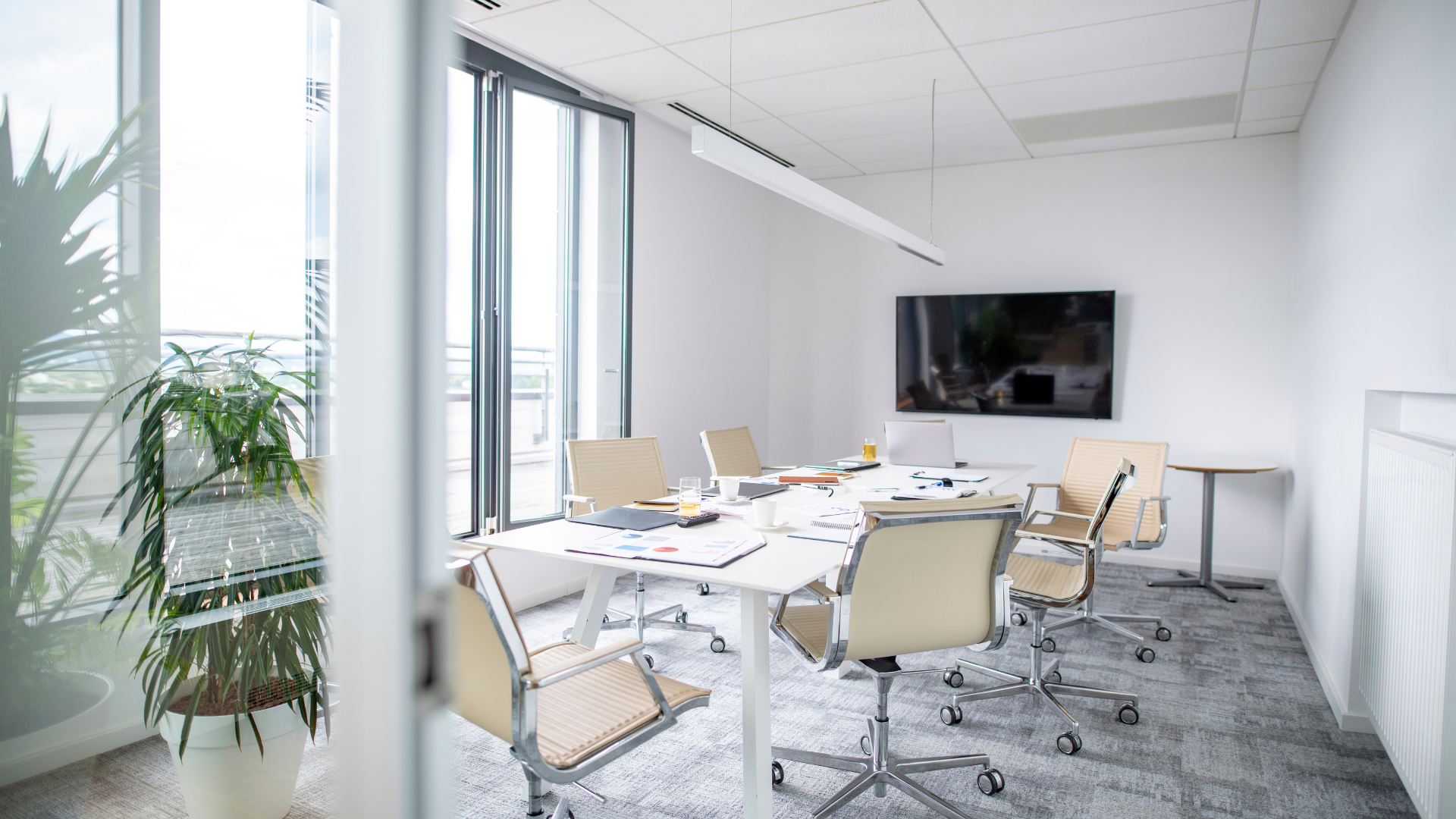In the bustling heart of South Brisbane, Queensland, lies a modern-day haven for entrepreneurs, startups, and businesses of all sizes – Mobo Co. As you step into our premier coworking space, one of the first things you’ll notice is the abundance of natural light streaming in, casting a warm and inviting glow over the well-appointed office suites, coworking areas, and meeting rooms. But this isn’t just an aesthetic choice. The emphasis on natural lighting is rooted in a deep understanding of its myriad benefits, especially in a shared workspace environment.
Historically, the battle between natural and artificial light has been a topic of discussion, with each having its own set of proponents. However, in recent years, the scales have tipped in favour of natural light, especially in the context of workspaces. As we delve deeper into this article, we’ll explore the undeniable advantages of natural light, from boosting employee productivity and happiness to fostering collaboration and even reducing utility costs. So, whether you’re a budding entrepreneur or part of a multinational corporation, understanding the power of natural light can revolutionise the way you view and design workspaces.
In this blog:
12 Undeniable Benefits of Natural Light in a Shared Workspace
12 Benefits of Natural Light in the Workplace
- Create a Bright and Welcoming Atmosphere
- Increased Employee Productivity
- Boost Vitamin D
- Encourage Better Sleep
- Reap the Energy Benefits of Daylight Harvesting
- Creates a Connection to the Outdoors
- Increases Energy Levels
- Greater Overall Employee Workplace Satisfaction
- The Komorebi Effect
- Increased Happiness at Work
- Fostered Collaboration and Engagement
- Help Counteract the Effects of Tech-Dependency
Enjoy Plenty of Natural Light at our Coworking Space
Natural light vs Artificial Light

The debate between natural and artificial light is not a new one. For centuries, humans relied solely on the sun and fire for illumination. It was only with the advent of the industrial revolution and the invention of the electric bulb in the late 19th century that artificial lighting became a staple in homes and workplaces. Initially hailed as a marvel, artificial lighting allowed for extended work hours and a shift in lifestyle. However, as time progressed, the drawbacks of prolonged exposure to artificial light began to surface.
While artificial lighting offers convenience, it lacks the dynamic spectrum of natural sunlight. The sun’s light changes throughout the day, from the soft hues of dawn to the bright light of midday and the golden glow of sunset. This natural rhythm plays a crucial role in regulating our body’s internal clock, or circadian rhythm. On the other hand, constant exposure to artificial light, especially the blue light emitted by screens, can disrupt this rhythm, leading to sleep disturbances and other health issues.
Why is Artificial Lighting Bad for You?
In the age of technological advancement, artificial lighting has become an integral part of our daily lives. From the fluorescent bulbs in offices to the screens of our digital devices, we are constantly surrounded by man-made light sources. While they offer convenience and extend our productive hours, over-reliance on artificial lighting has its drawbacks. Here’s why:
Disruption of Circadian Rhythm
Our bodies operate on a natural internal clock known as the circadian rhythm, which regulates sleep patterns, hormone release, and even digestion. Prolonged exposure to artificial light, especially in the evening, can disrupt this rhythm, leading to sleep disturbances and other health issues.
Increased Risk of Eye Strain
The consistent and often harsh glow of artificial lights, especially from screens, can lead to digital eye strain. Symptoms include dry eyes, blurred vision, and headaches, which can affect productivity and overall well-being.
Mood and Mental Health Impacts
Lack of exposure to natural light and overexposure to artificial light can affect mood. Some studies suggest a link between artificial light exposure and increased risk of depression and anxiety.
Lack of Vitamin D Production
Natural sunlight is a primary source of Vitamin D for our bodies. Relying solely on artificial light means missing out on this essential nutrient, which plays a crucial role in bone health, immune function, and mood regulation.
Energy Inefficiency
While not a direct health concern, it’s worth noting that many artificial lights, especially older models, are less energy-efficient than natural light. This can lead to increased utility bills and a larger carbon footprint.
Potential for Migraines
Some individuals are particularly sensitive to the flickering of certain artificial lights, which can trigger migraines or exacerbate their frequency.
Blue Light Exposure
Many digital devices emit blue light, a high-energy visible light that can interfere with sleep and strain the eyes. Over time, excessive blue light exposure can potentially harm retinal cells.
12 Benefits of Natural Light in the Workplace

1. Create a Bright and Welcoming Atmosphere
Natural light has the innate ability to transform a space. When clients or potential partners step into a workspace, the ambiance plays a pivotal role in shaping their initial perceptions. A naturally illuminated environment exudes positivity and warmth, making the space more inviting. Beyond first impressions, the play of sunlight can accentuate interior design elements, making spaces appear more spacious and aesthetically pleasing. Moreover, the softness of natural light offers a comfort that artificial lights often can’t match, ensuring that employees and visitors feel at ease.
2. Increased Employee Productivity
The impact of natural light on productivity is profound. Constant exposure to artificial lighting, especially the harsh glow of fluorescent lights, can lead to eye strain and discomfort. In contrast, natural light offers a gentler alternative, significantly reducing visual fatigue. Additionally, sunlight has been shown to increase the production of serotonin in the brain, a neurotransmitter that boosts mood, alertness, and overall energy. This uplifted mood can lead to enhanced productivity. Furthermore, with improved well-being and reduced instances of eye strain, employees are less likely to take sick days, ensuring a consistent and efficient workflow.
3. Boost Vitamin D
Sunlight is the most potent source of Vitamin D, a nutrient essential for various bodily functions. While certain foods and supplements can provide this vitamin, the human body most efficiently produces Vitamin D when exposed to sunlight. Even brief moments under the sun can lead to significant health benefits. Adequate levels of Vitamin D play a crucial role in bolstering the immune system, potentially reducing the risk of illnesses. Beyond physical health, Vitamin D is also intricately linked to mood regulation. Its presence can help alleviate symptoms of depression, ensuring that employees remain in high spirits.
4. Encourage Better Sleep
The benefits of natural light extend beyond the waking hours. Our bodies operate on an internal clock known as the circadian rhythm, which regulates sleep patterns. Daytime exposure to natural light helps synchronise this rhythm, promoting better sleep when night falls. A balanced sleep-wake cycle, aided by consistent natural light exposure, can significantly reduce instances of insomnia. This ensures that employees are well-rested, rejuvenated, and ready to tackle challenges with renewed vigour each day.
5. Reap the Energy Benefits of Daylight Harvesting
Embracing natural light is not just about health and productivity; it’s also about sustainability. Daylight harvesting, the practice of maximising the use of natural light, reduces the need for artificial lighting. This eco-friendly approach leads to decreased energy consumption and, consequently, a reduction in carbon emissions. From a financial perspective, less energy usage translates to reduced utility bills, offering significant savings over time. Moreover, businesses that adopt such sustainable practices often enjoy a positive brand image, showcasing their commitment to environmental responsibility.
6. Creates a Connection to the Outdoors
Natural light bridges the gap between the indoors and the vast expanse of the outside world. In a shared workspace, windows that allow sunlight to pour in also provide glimpses of the world outside, be it the bustling city streets, serene landscapes, or the azure sky. This connection to nature can be grounding, reminding individuals of the world beyond their screens and tasks. It fosters a sense of belonging and reduces feelings of confinement, which can be particularly beneficial in high-pressure work environments.
7. Increases Energy Levels
It’s no secret that natural light invigorates the human spirit. Unlike the stagnant and often dull glow of artificial lights, the dynamic brightness of sunlight can significantly elevate energy levels. Employees in naturally lit workspaces often report feeling more alert and less sluggish, especially during the post-lunch hours when energy levels typically dip. This consistent energy ensures that the momentum of the workday is maintained, leading to more accomplishments and fewer lulls.
8. Greater Overall Employee Workplace Satisfaction
A workspace bathed in sunlight doesn’t just boost productivity; it enhances overall satisfaction. Employees who enjoy the benefits of natural light often express higher levels of contentment with their work environment. This satisfaction can lead to increased loyalty, lower turnover rates, and a positive workplace culture. When employees are happy with their environment, they are more likely to engage positively with their tasks and colleagues.
9. The Komorebi Effect
‘Komorebi’ is a Japanese term that describes the effect of sunlight streaming through the leaves of trees. While a shared workspace might not have trees inside, the play of sunlight through windows, especially when it casts dappled shadows, can have a calming and almost meditative effect. This subtle interplay of light can reduce stress, inspire creativity, and offer moments of reflection amidst a busy workday.
10. Increased Happiness at Work
Sunlight is a natural mood enhancer. Its presence in the workspace can lead to increased levels of happiness and positivity. A happy employee is often more motivated, collaborative, and open to new ideas. This uplifted mood can foster a positive work environment where innovation thrives and challenges are met with enthusiasm.
11. Fostered Collaboration and Engagement
Natural light can play a surprising role in fostering collaboration. Bright, open spaces are more conducive to group discussions, brainstorming sessions, and spontaneous meetings. The welcoming environment created by natural light can encourage employees to engage more openly, share ideas, and collaborate on projects.
12. Help Counteract the Effects of Tech-Dependency
In today’s digital age, most tasks are tied to screens, be it computers, tablets, or smartphones. Prolonged exposure to these screens can lead to digital eye strain and fatigue. Natural light offers a reprieve from this tech-dependency. Periodic glances outside or simply working in a sunlit environment can reduce the adverse effects of screen time, promoting better eye health and overall well-being.
Enjoy Plenty of Natural Light at our Coworking Space

Nestled in the vibrant heart of South Brisbane, Mobo Co stands as a testament to modern workspace design, where functionality meets well-being. One of the standout features of our coworking space is the emphasis on natural light. At Mobo Co, we believe that a workspace should be more than just desks and chairs; it should be an environment that nurtures creativity, fosters productivity, and promotes overall well-being. And what better way to achieve this than by harnessing the power of sunlight?
From the moment you step into Mobo Co, you’ll be greeted by expansive windows that allow sunlight to flood in, illuminating every nook and cranny. These architectural choices are not merely aesthetic; they are rooted in a deep understanding of the myriad benefits that natural light brings to a workspace.
Whether you’re settling into one of our office suites, collaborating in the coworking areas, hosting a meeting, or even utilising our virtual office services, the presence of natural light is palpable. The sun’s rays cast a warm and inviting glow, creating an ambience that’s both professional and comforting. This natural illumination reduces the need for excessive artificial lighting, ensuring that you’re working under conditions that are optimal for your eyes and your mind.
Beyond the immediate visual appeal, the abundance of natural light at Mobo Co offers tangible benefits. It’s been shown to boost mood, increase productivity, and even improve sleep quality. So, as you work on your projects, brainstorm ideas, or engage in discussions, you’re not just in a space – you’re in an environment designed for peak performance and well-being.
Moreover, our commitment to natural light reflects our broader ethos at Mobo Co. We prioritise the well-being of our community members, understanding that a happy, healthy individual is more engaged, collaborative, and innovative. By ensuring our spaces are bathed in sunlight, we’re taking a step towards creating a holistic work environment where every member can thrive.
In essence, Mobo Co isn’t just a place to work; it’s a place to grow, innovate, and shine – much like the natural light that graces our interiors. So, if you value an environment that resonates with positivity, energy, and well-being, Mobo Co is where you need to be. Book a tour of our space today.